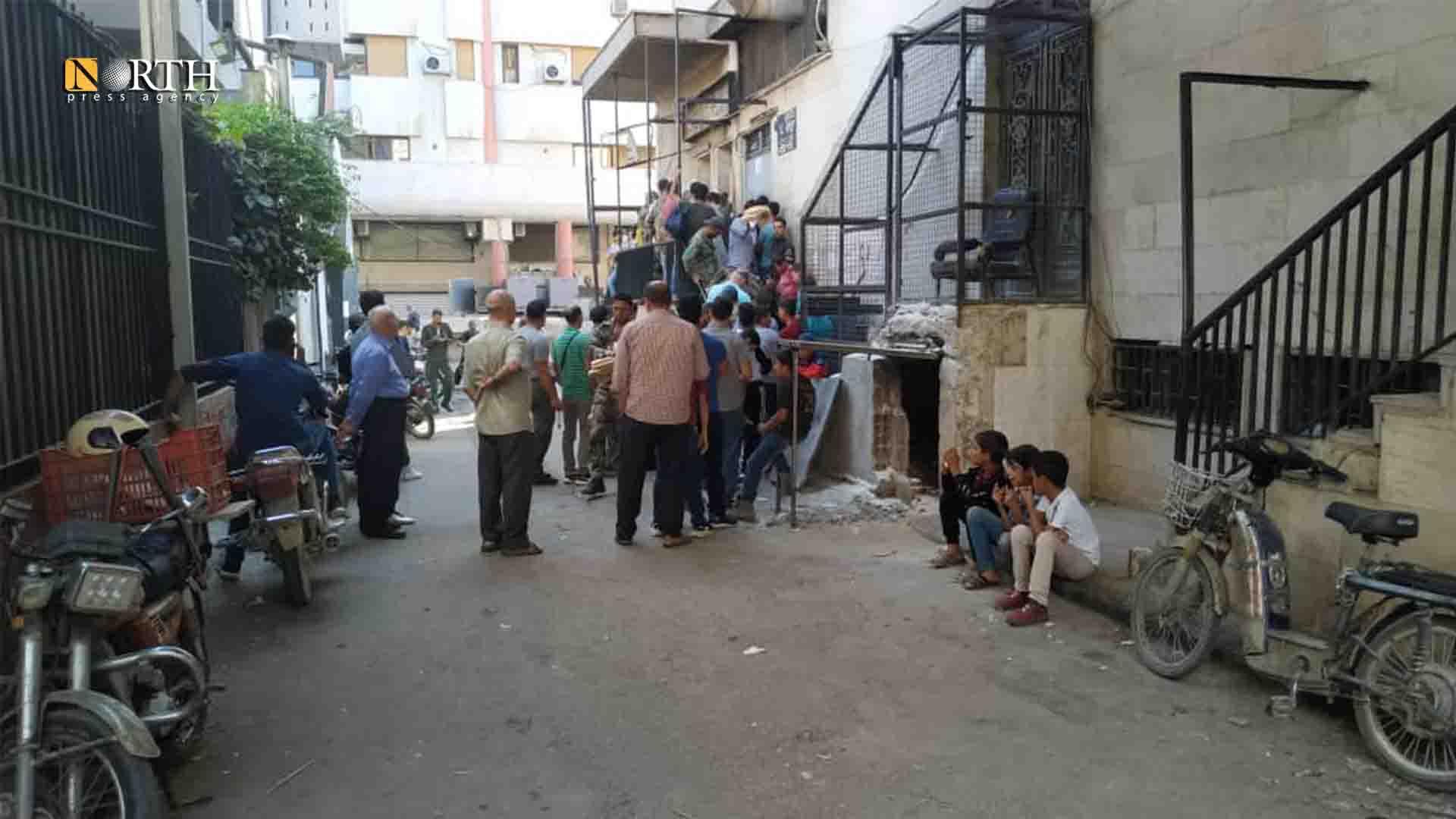Syria’s bread crisis linked to corruption and weak economic management
DAMASCUS, Syria (North Press) – Journalists and intellectuals of Syria’s Damascus see the worsening of the bread crisis amid the absence of serious solutions as a clear indication of the government’s weak economic management and its inability to fight corruption in the most sensitive sectors.
Murhaf Harmoush, a journalist living in Damascus, said that the bread crisis is the most severe in a series of successive crises that the Syrian citizen has lived through. This is because it threatens the food security of the population in light of the frightening collapse of the economic situation.
Harmoush believes that the reason for the bread crisis is due to weak economic management and the lack of adequate import sources in light of US sanctions imposed by the Caesar Act, in addition to the high and volatile exchange rate of the dollar.
For nearly two months, Damascus has been witnessing a shortage of bread and confusion over government decisions to determine the mechanisms for its distribution, as residents are forced to stand for hours in long queues in order to get one or two bundles of bread.
Last month, the government raised the price of a bundle of bread from 50 to 100 Syrian pounds, while reducing the weight of the bundle from 1,300 grams to 1,100 grams.
Bread distribution in government areas depends on a smart card. A family consisting of one to three people, for example, is entitled to one bundle of bread, and a family of four to seven people is entitled to two bundles of bread.
The government determines the amount of bread that Syrians must eat, and if they need more, they will have to go to the black market to buy additional quantities.
“Corruption has ruined all sectors, particularly administrative corruption and the ill-considered and improvised decisions that result,” Harmoush said.
“There are financial gains for some people from the continuing crisis, and their names are known to everyone,” he added.
The Syrian government areas suffer from a severe shortage of wheat and flour for bakeries, despite previous official statements that claimed the government’s ability to secure basic materials.
Last week, Jamal Shuaib, the assistant Minister of Domestic Trade and Consumer Protection, said that overcrowding in bakeries to obtain bread will subside in the next few days. Shuaib did not mention at the time the mechanism that the government will follow to solve the worsening bread crisis.
Mayada al-Lababidi, a poet living in Damascus, believes that the hours-long queues in front of bakeries are an “insult to all Syrian people, for that is a scene of a tyrannical government, and we are oppressed people.”
“It is unreasonable for a person to spend half of his day in line to obtain his most basic right: a loaf of bread,” she added.
Screenwriter and Damascus resident Fayez Bashir sarcastically linked the shape of the circular loaf to the shape of the wheels of a car that needs gasoline, the shape of the circular heater that needs diesel and the shape of the state departments that cannot find solutions.
Regarding the government’s justification of the shortages by citing economic embargoes and the Caesar Act, Bashir asked: “Where do luxury cars and modern mobile phones come from? Or does the Caesar Act only affect the loaf of the poor?!”

